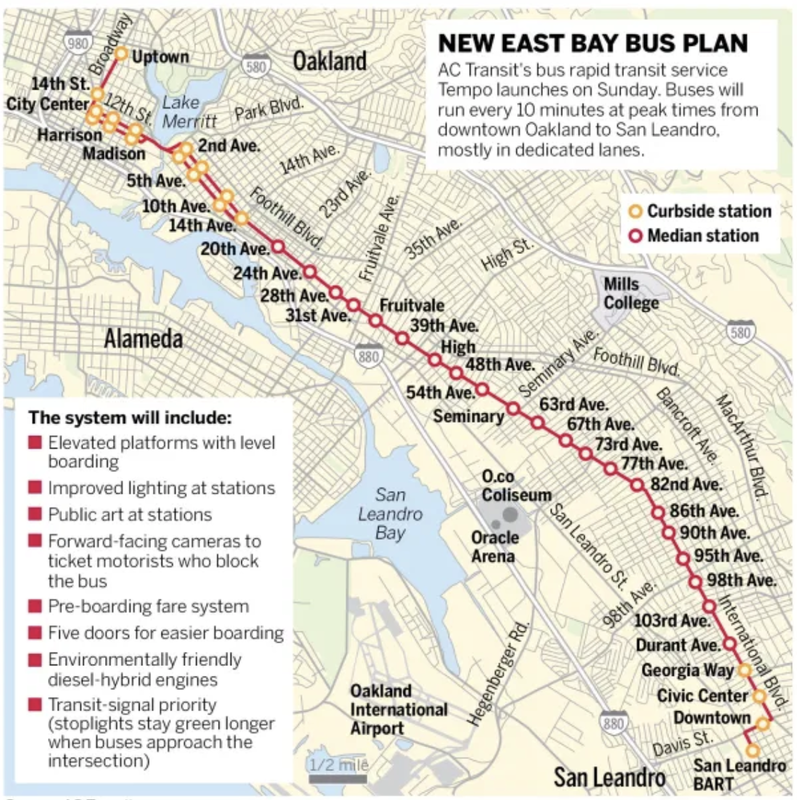|
AC Transit’s new rapid transit project named “Tempo” has officially started service! It takes riders from Oakland’s Uptown to the San Leandro BART station, driving through most of the 9.5-mile route in dedicated bus lanes for quick and easy transportation between locations.
Tempo will function more like a light rail line due to its frequent service and lack of car traffic, saving riders valuable time. Buses will arrive every 10 minutes between 6 a.m. and 7 p.m., and every 15 minutes from 7pm to midnight. Early morning service on the 24-hour line will run every 30 minutes on weekends, and hourly on weekdays. To celebrate the start of the line and make up for construction delays, AC Transit won’t charge fares to ride the new buses until November 8th. So bring your mask and get those free joy rides in while you can! Despite the ongoing health crisis, rising unemployment, and battered economy, residential real estate is still on the rise. Why and how is this even happening?? This new phenomenon, coined by the CEO of Zillow, is called "The Great Reshuffling."
With millions of people making major housing changes, from upsizing to downsizing, being closer to family and further from the office, this pandemic is causing us to rethink and reshape the way we live and work. Those who plan to WFH forever are moving away from urban centers, where demand is far outstripping supply. Buyers want to move to larger spaces, while current homeowners are hanging onto their homes amid all the uncertainty, limiting available inventory. Instead of LOCATION LOCATION LOCATION, the new real estate mantra seems to be HOUSE HOUSE HOUSE (although that doesn't roll off the tongue quite as easily). So while commercial real estate is on the struggle bus, residential real estate is still for the most part very much a seller's market. Covid has had an interesting effect on rental markets, with housing becoming cheaper in the country’s most expensive cities (San Francisco, New York City, Boston, San Jose, and Oakland to name the top 5), while getting pricier in more historically affordable areas. What’s going on? Amidst the pandemic we’re in, demand for rentals has dropped in the aforementioned larger cities, the desire for housing in cheaper suburban areas has gone up. According to the rental platform Zumper, people are opting to move out of their large city dwellings and opting for cheaper housing while they work remotely, effectively closing the gap between price distribution of rentals across the U.S.
|
Michaela ToAll things real estate. Categories
All
Archives
April 2022
|



